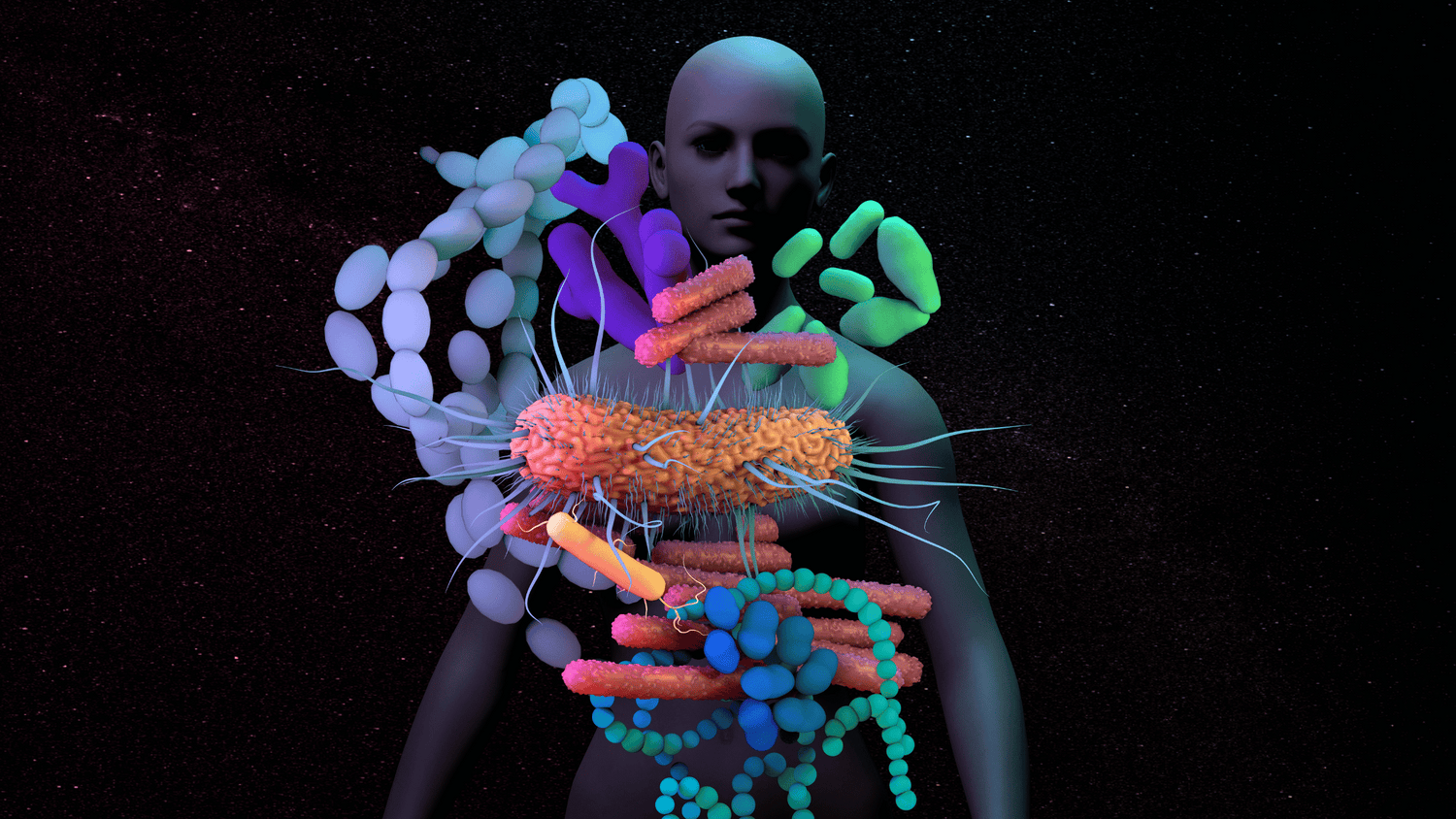The microbiome is a community of microorganisms that play a pivotal role in your overall health and well-being. As you age, numerous factors influence your microbiome, which, in turn, profoundly impacts the aging process. This intricate relationship between your microbiome, aging, and the immune system is a subject of increasing interest in scientific research (R, R, R, R).
This comprehensive exploration will delve into the multifaceted connections between microbiomes, immune function, aging, potential interventions, and their implications for your health and longevity.
Factors Affecting Microbiomes and Aging
The composition and diversity of microbiomes are greatly influenced by various factors. These factors, which encompass both external and internal elements, are instrumental in shaping our microbiome and how we age.
External factors include exposure to different environments and lifestyle choices. For instance, individuals who receive vaccines are exposed to a broader range of antigens, which can help their bodies build a more robust immune response against specific pathogens. The external environment also plays a significant role in aging. Comparing developing countries to first-world countries illustrates this point.
The disparities in lifestyles, such as access to clean water and sun protection, have a considerable impact on the health and diversity of microbiomes. Those who lead healthier lifestyles tend to experience changes in the aging process, further highlighting the interconnectedness of these factors (R).
The Connection between the Immune System and the Microbiome
One of the key connections between the microbiome and aging is its profound influence on the immune system. Microbiomes help expose the immune system to a wide range of antigens, thereby enhancing its adaptability and strength. Healthy and diverse microbiomes promote the growth of beneficial bacteria in the gut, which, in turn, modulate immune function. These specific bacteria can alter how the immune system responds to various diseases, contributing to an individual's overall health (R,R).
Recent research has highlighted the close relationship between the immune system and the microbiome. Various microorganisms in your body play a pivotal role in safeguarding the immune system. Greater microbiome diversity can enhance the immune systems’ ability to combat infectious threats.
In essence, the more diverse an individual's microbiomes, the better their immune system is equipped to fight infections. This underscores the importance of maintaining a healthy balance of microorganisms in your body for optimal gut health and overall well-being (R).
Further Research and Potential Interventions
While significant progress has been made in understanding the interplay between microbiomes, the immune system, and aging, much more research is still needed in this area. A more profound understanding of these connections could lead to more personalised interventions aimed at enhancing health and longevity (R).
Research has already identified several effective interventions that can mitigate the effects of aging. These interventions include practising good hygiene, maintaining a nutritious diet, prioritizing adequate sleep, managing stress levels, and engaging in regular physical activity and social interactions.
Continuing research in these areas is crucial, as these interventions offer numerous benefits for overall health. Staying up to date with vaccinations is also essential for proactive health maintenance (R).
Delving deeper into the pathways involved in the microbiome-immune system connection can provide valuable insights into personalized interventions, unique medicines, disease prevention strategies, and mental health interventions.
These factors are all vital for achieving a balanced and optimal lifespan. It is imperative to explore new and innovative approaches to address the diverse factors contributing to aging-related health issues (R).
Harnessing the Immune System-Microbiome Interaction
Recent studies have illuminated the pivotal role microbiomes play in the development and functionality of the immune system. Any disruption to this delicate balance can lead to immune dysfunction and various illnesses. Microorganisms work in concert together to facilitate digestion, produce essential vitamins, and regulate the immune system (R).
Researchers are now actively exploring the intricate relationship between the immune system and the microbiome. This exploration holds the potential to revolutionize the treatment of a wide array of diseases. It has been observed that individuals with a more diverse microbiome experience fewer negative impacts on their immune system's mutualism, resulting in a reduced risk of illnesses and enhanced adaptive immunity.
Consequently, the exposure and treatment of microbiomes can significantly impact the immune system's strength, influencing health outcomes ranging from inflammatory bowel disease and allergies to cancer (R).
Understanding the Immune System
-
At what age is the immune system fully developed?
Our immune system becomes more vulnerable to various bacteria, germs, and diseases as we age. Therefore, maintaining good hygiene and avoiding contact with sick individuals are crucial steps in preventing the spread of illnesses. For instance, during the COVID-19 pandemic, it became evident that individuals in their mid-20s are less vulnerable due to their fully developed immune systems. Nevertheless, regardless of age, it is essential to take steps to keep the immune system healthy to prevent illness (R).
-
At what age does your immune system weaken?
Research shows that the immune system weakens as individuals age, typically around the age of 65. This weakening is primarily attributed to factors such as the decrease in T-cells, B-cells and the dysregulation of cytokines. As people grow older, these factors continue to decline, making older individuals more susceptible to various bacteria, germs, and diseases. This is why specific vaccines become recommended for older age groups (R).
-
What age group has the strongest immune system?
Determining which age group has the strongest immune system is complex, as it varies based on genetics and lifestyle. However, research suggests that the peak of puberty, which differs between boys and girls, may be the time when the immune system is at its strongest for both men and women. In mid-to-late adulthood, microbiomes become increasingly personalized, and individuals with more diverse microbiomes tend to exhibit better clinical laboratory results, physical health, and mobility and require fewer medications (R,R,R).
Conclusion
In conclusion, the intricate relationship between microbiomes, the immune system, and aging is a rapidly evolving field. Microbiomes play a crucial role in shaping our health and aging by exposing the immune system to diverse antigens. External and internal factors influencing microbiomes are vital in maintaining well-being.
Research into interventions like good hygiene, nutritious diets, sufficient sleep, stress management, social interactions, and physical activity can significantly impact health as we age. Understanding microbiome-immune system pathways can lead to personalized treatments that enhance quality of life.
Staying informed and proactive about health maintenance and disease prevention empowers us to make decisions that positively influence aging and overall well-being, leading to longer, healthier lives.




